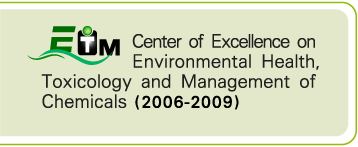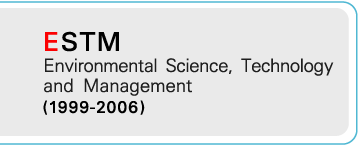| Traffic-related particulate pollution is a main source of exposure to mutagenic and carcinogenic compounds such as polycyclic aromatic hydrocarbons (PAHs) and nitro-PAHs. Epidemiological studies have demonstrated that exposure to these toxic air pollutions is associated with respiratory diseases and lung cancer. Nitro-PAHs are generated through incomplete combustion of fossil fuels, organic materials and nitration of PAHs. 1-nitropyrene (1-NP) is considered one of the most abundant nitro-PAHs in particulate emissions of diesel engine exhaust. 1-NP plays an important role on oxidative cellular damage through reactive oxygen species (ROS) generation causing lipid peroxidation and oxidative DNA damage which may predispose to the development of many respiratory diseases including cancer. Corilagin, a novel member of the phenolic tannin family which presented in a high content of dried seed of Longan fruit, has been shown to possess antioxidant properties. In this study, we investigated the protective effect of corilagin on 1-NP induced oxidative stress in human pulmonary epithelial cells (A549). We found that exposure of A549 cells to 1-NP caused induction of oxidative stress as demonstrated by significantly increased intracellular levels of ROS as well as malondialdehyde (MDA), a biomarker of lipid peroxidation, in concentration-dependent manner and also caused markedly reduce glutathione(GSH)/glutathione disulfide(GSSG) ratio. By contrast, pre-treatment with corilagin prior to further co-treatment with 1-NP markedly attenuated these alterations. The possibly mechanisms of anti-oxidative effect of corilagin against 1-NP induced oxidative stress may be ascribed to the facilitating nuclear localization of nuclear factor-E2-related factor 2 (Nrf2) from cytosol into nucleus leading to increase nuclear Nrf2 accumulation, which subsequently mediated the expression of its downstream antioxidant enzymes such as heme oxygenase-1 (HO-1) and NADPH- quinine oxidoreductase (NQO1) associated with induction of GSH/GSSG ratio. Thus, resulting in induction of defensive mechanism against 1-NP induced oxidative stress as shown by the reduction of lipid peroxidation and ROS generation when compared with those obtained from 1-NP treatment alone. Combining all results suggesting that cytoprotective effect of corilagin in enhancement antioxidant defense might be used as candidate plant derived chemical which may potentiate for reducing the adverse effect of exposure to oxidative air pollutants such as 1-NP induced lung diseases. แหล่งข้อมูล:
|
 Center of Excellence on Environmental Health and Toxicology (EHT)
Center of Excellence on Environmental Health and Toxicology (EHT)










